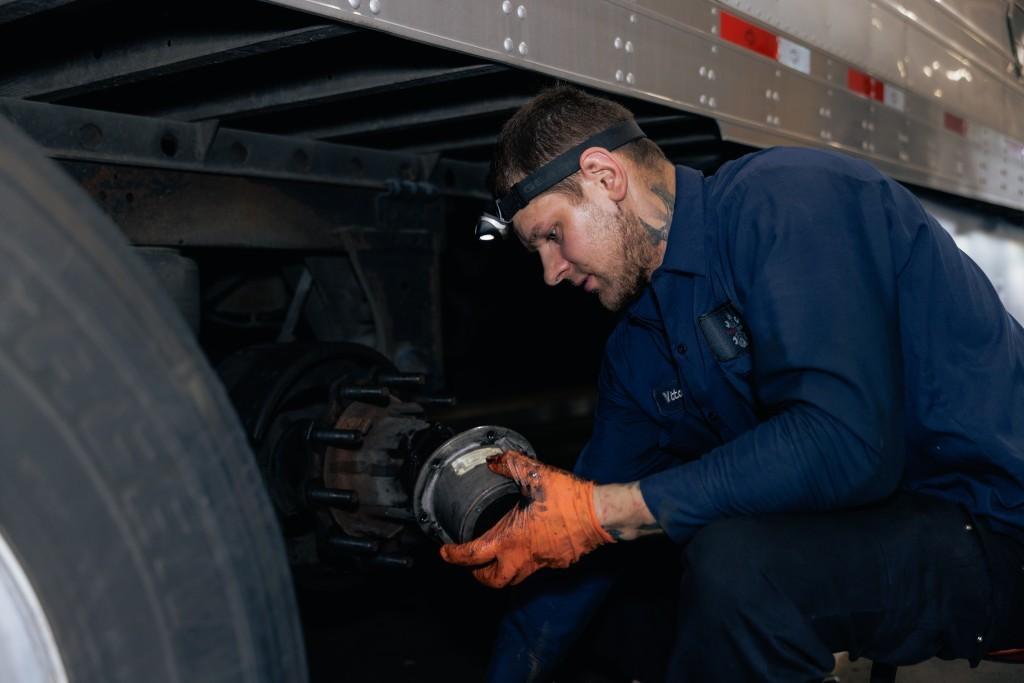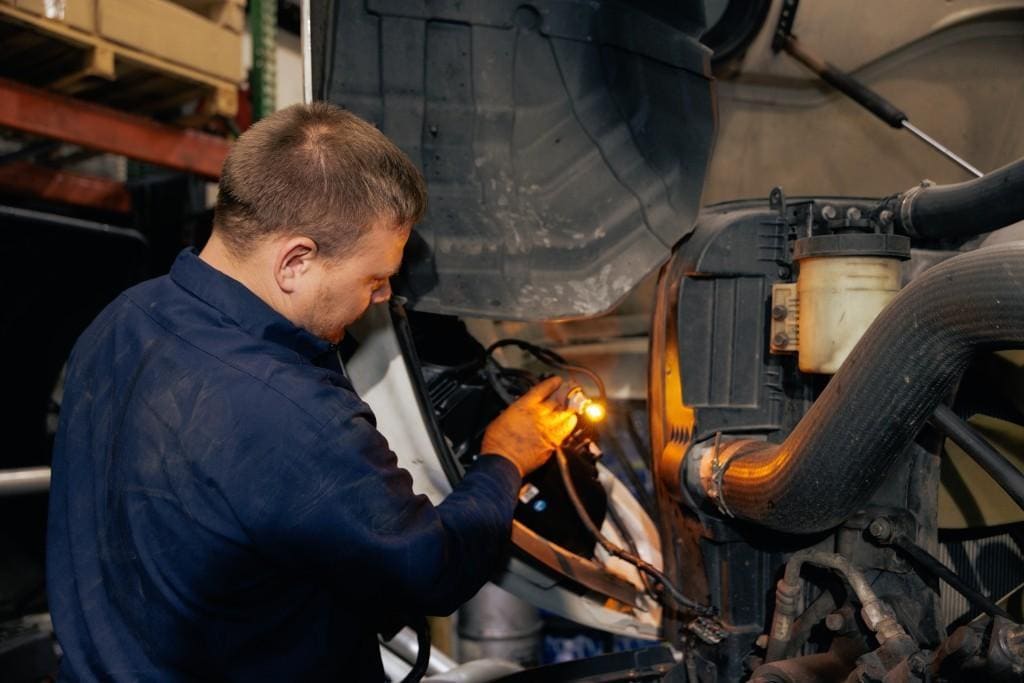For truck drivers and fleet operators, every mile on the road is money. But when a breakdown happens, that money can start slipping away quickly. Between costly towing fees, missed delivery deadlines, and repair bills, a single mechanical failure can seriously cut into profits.
That’s why finding a truck repair service that balances affordability and quality is one of the smartest investments you can make. Affordable service ensures you control expenses, while quality workmanship keeps your trucks safe, compliant, and reliable for the long haul.
Unfortunately, many drivers in Chicago and beyond have learned the hard way that “cheap” doesn’t always mean cost-effective. A low-cost repair that fails inspection or breaks down again after a few weeks can end up costing far more in downtime and repeat fixes. On the other hand, paying premium rates doesn’t always guarantee better work either.
So how do you strike the right balance? Here’s a comprehensive guide to choosing an affordable truck repair service without compromising on quality—and keeping your business moving forward.
Why Both Affordability and Quality Matter

A repair shop that’s too expensive can eat into your margins, while one that cuts corners puts your safety and compliance at risk. Here’s why both factors are equally important:
- Safety: Commercial trucks carry heavy loads on busy highways. Poor-quality repairs increase the risk of accidents.
- Compliance: The Federal Motor Carrier Safety Administration (FMCSA) and Illinois Department of Transportation (IDOT) require vehicles to meet strict inspection standards. A substandard repair could mean failed inspections, fines, or out-of-service orders.
- Profitability: A reliable truck mechanic saves you money in the long run. Spending a little more upfront for quality parts and skilled labor prevents costly breakdowns and unplanned downtime.
In short, affordability keeps your costs predictable, and quality ensures your trucks stay on the road where they belong.
Key Factors to Look for in a Truck Repair Service
When evaluating repair shops, don’t just look at the price tag. Consider these critical elements to ensure you’re making the best choice:
1. Certifications and Compliance
A reputable truck repair service should employ certified technicians trained in DOT inspections and FMCSA standards. This guarantees that the repairs are done correctly and won’t cause compliance issues later. Ask specifically whether the shop performs DOT-certified annual inspections and whether their staff is familiar with IDOT requirements for trucks operating in Illinois.
2. Transparent Pricing and Estimates
One of the most common frustrations drivers face is hidden fees. A trustworthy shop will provide clear estimates before starting any work, breaking down labor costs, parts, and any additional charges. Transparency protects you from surprises and allows you to compare shops fairly.
3. Experience With Your Vehicle Type
Not all trucks are the same. A fleet of semi-trailers requires different expertise than box trucks or specialized equipment like flatbeds or hazmat carriers. Choose a repair service that regularly handles your type of vehicle to ensure accurate diagnostics and repairs.
4. Preventive Maintenance Options
The best repair services help you avoid breakdowns in the first place. Look for providers that offer preventive maintenance packages covering brakes, tires, lights, fluids, and suspension systems. Preventive care is almost always more affordable than emergency fixes.
5. Emergency and Roadside Support
Breakdowns rarely happen at convenient times. A good truck repair service should either provide 24/7 roadside assistance or guarantee fast turnaround times in their shop. Quick service minimizes downtime and keeps you on schedule.
6. Reputation and Reviews
Word of mouth is one of the most reliable indicators of quality. Ask other drivers for recommendations or check online reviews. Consistent praise for affordability, reliability, and honesty is a strong sign that the shop delivers on its promises.
Common Cost Traps to Avoid
When searching for affordable service, be cautious of these common traps:
- Cut-rate parts: Bargain components might save money upfront but wear out faster, causing repeat repairs and safety risks.
- Skipping inspections: Some shops may suggest bypassing inspections to save money. This almost always leads to higher fines and downtime later.
- Ignoring small problems: Putting off minor repairs, like worn tires or misaligned brakes, often results in major breakdowns that cost far more to fix.
Remember: the cheapest option often ends up being the most expensive in the long run.
How to Compare Truck Repair Services
When narrowing down your options, use these steps to make a fair comparison:
- Request detailed estimates from at least three shops. Compare not just the total price but also labor rates, parts quality, and warranties.
- Ask about turnaround times. A lower price isn’t much help if your truck is stuck in the shop for a week.
- Check warranty policies. Quality shops stand behind their work with warranties on both parts and labor.
- Visit the facility if possible. A clean, organized, and well-equipped shop is usually a sign of professionalism and efficiency.
- Look at long-term savings. Consider preventive maintenance packages and loyalty discounts rather than focusing only on one-time repair costs.
Tips for Saving Money Without Compromising on Quality
- Build a relationship with one repair provider. Loyal customers often receive discounts, priority scheduling, and personalized service.
- Bundle services. Combine oil changes, tire checks, and inspections in one visit to reduce overall labor costs.
- Stay on top of daily inspections. Completing pre-trip and post-trip DVIRs (Driver Vehicle Inspection Reports) helps catch small issues before they become expensive repairs.
- Use downtime wisely. Schedule non-urgent maintenance during off-peak periods to avoid paying rush or emergency fees.
- Negotiate service contracts. For fleet operators, signing a service agreement with a single shop can lead to significant savings over time.
Chicago-Specific Considerations

Operating in a major freight hub like Chicago adds unique challenges:
- Strict enforcement zones: Trucks around intermodal terminals, industrial corridors, and busy freight routes are heavily monitored. A poor-quality repair could lead to roadside violations and immediate fines.
- Weather-related wear: Harsh winters and heavy traffic take a toll on brakes, tires, and suspension systems. Regular maintenance is especially important in Chicago’s climate.
- IDOT compliance: In addition to FMCSA rules, Illinois enforces state-specific requirements, including weight limits and hazmat handling procedures. Your repair service should be familiar with both sets of regulations.
By choosing a local provider experienced with these challenges, you’ll minimize compliance risks and downtime.
Real-World Example: Cutting Costs the Smart Way
Consider two Chicago-based owner-operators:
- Driver A chooses the cheapest shop for a brake repair. The parts fail within three months, leading to a roadside inspection violation, an out-of-service order, and a second repair bill. Total cost: $2,000+ in fines, downtime, and repeat repairs.
- Driver B chooses a moderately priced but certified shop. The repair uses quality parts, passes inspection, and lasts for years. Total cost: $700 upfront, with no unexpected downtime.
The lesson is clear: affordable quality beats short-term savings every time.
Final Thoughts
Finding a truck repair service that’s both affordable and high-quality isn’t just possible—it’s essential. By focusing on certified technicians, transparent pricing, preventive maintenance, and a strong reputation, you can keep costs under control without sacrificing safety or compliance.
In a city like Chicago, where freight traffic is heavy and enforcement is strict, choosing the right repair partner can mean the difference between smooth operations and costly downtime.
Affordable doesn’t mean cheap, and quality doesn’t have to be overpriced. With the right approach, you can have both—and keep your trucks rolling profitably for years to come.

